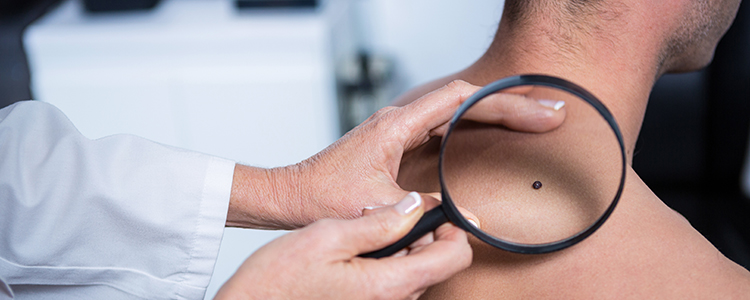
Minor Skin Tumours
It is rare, but some minor skin tumours disappear on their own without treatment. Skin tumours are growths on the skin that can be cancerous or harmless. The direct cause of these skin tumours remain unknown. As small as they may be, these minor skin tumours can be easily irritated and painful in individual cases.
The correct diagnosis is essential for you to get the best treatment that will be a long-term solution. A diagnosis is usually based on the appearance of the lesion and the patient's clinical history, although a biopsy is sometimes required. Your dermatologist will typically assess any tumours, cysts or moles when you have your skin examination.
What causes skin tumours?
People who work outdoors have a higher risk of skin cancer as they are exposed to the sun for long periods of time. Minor skin tumours have the potential to be cancerous. Due to this risk, changes such as colour and texture among other possibilities.
Skin tumours develop as a result of the rapid reproduction of cells or multiple components of the skin. When a new skin tumour, lesion or mark appears on our surface. It can be difficult to tell if it is dangerous or not. If you have any suspicions about a mark, mole or lesion, the doctor may notice it, but you still should ask your dermatologist to have a look at it.
Minor skin tumours treatments may include:
Curettage and electrodesiccation: It is used to treat pre-cancerous tumours. This procedure involves scraping away the tumour tissues.
Surgical excision: This involves cutting into the skin to completely remove the growth, and finally closing the wound with stitches.
Cryosurgery: During this procedure, a measured amount of liquid nitrogen is used to freeze the tumour tissue which kills the tumor.

